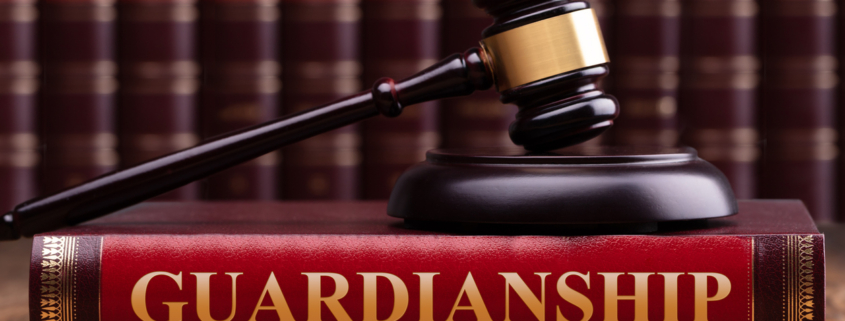Ensuring the Right Support for Adults With Developmental Disabilities in Florida
When a child with developmental disabilities reaches adulthood, parents and caregivers often face new legal challenges in continuing to provide necessary support. In Florida, guardian advocacy offers a streamlined alternative to traditional guardianship, allowing families to assist their loved ones without the need for a full incapacity determination.
I’m Beryl Thompson-McClary, an Orlando Guardianship Attorney, and I help families navigate the guardian advocacy process to ensure their loved ones receive the support they need while maintaining as much independence as possible. If you need assistance with a guardian advocacy petition, call my office at 1-888-640-2999 to schedule a consultation.
What Is Guardian Advocacy in Florida?
Guardian advocacy is a legal process that allows family members or trusted individuals to assist adults with developmental disabilities in making important life decisions. Unlike traditional guardianship, it does not require a formal court finding of incapacity.
Under Florida Statute 393.12, guardian advocacy is available for individuals who:
- Have a diagnosed developmental disability, such as autism, cerebral palsy, Down syndrome, or intellectual disability
- Had the disability prior to turning 18
- Require some assistance in making medical, financial, or personal decisions but are not completely incapacitated
This process allows parents, siblings, or other close relatives to continue providing support and guidance in adulthood.
Key Benefits of Guardian Advocacy Over Traditional Guardianship
Guardian advocacy is often preferable to full guardianship because:
- No Incapacity Hearing Required – The court does not have to declare the individual legally incapacitated, preserving their dignity and independence.
- Streamlined Legal Process – The petition process is typically faster and less costly than traditional guardianship.
- Retained Rights – The individual retains more rights than they would under full guardianship, and only specific decision-making powers are transferred.
- Family-Centered Approach – Guardian advocates are often family members who already provide care and understand the individual’s needs.
What Decisions Can a Guardian Advocate Make?
The court will determine which rights the individual retains and which are transferred to the guardian advocate. Common responsibilities include:
- Medical Decisions – Providing consent for treatments, medications, and therapies
- Education and Employment Decisions – Assisting with special education services, vocational training, and job placement
- Living Arrangements – Ensuring safe and appropriate housing
- Financial Management – Overseeing government benefits, bank accounts, and necessary expenses
A guardian advocate must act in the best interest of the individual and comply with court requirements, including periodic reporting.
Steps to Becoming a Guardian Advocate in Florida
To become a guardian advocate, you must follow these legal steps:
- File a Petition – Submit a guardian advocacy petition in the Florida probate court where the individual resides.
- Provide Medical Documentation – A doctor’s statement confirming the individual’s developmental disability is required.
- Submit a Guardianship Plan – Outline how you will assist in decision-making responsibilities.
- Attend a Court Hearing – The judge will review the petition and determine what rights the individual retains.
- Complete Training Requirements – Florida law requires guardian advocates to complete an educational program on their duties.
Once approved, the guardian advocate is responsible for submitting periodic reports to the court about the individual’s well-being.
Alternatives to Guardian Advocacy
While guardian advocacy provides important legal protections, some families may find that other legal tools are sufficient. Alternatives include:
- Power of Attorney (POA) – If the individual has the capacity to understand legal documents, they may grant decision-making authority to a trusted person.
- Health Care Surrogate Designation – Allows a designated individual to make medical decisions when necessary.
- Supported Decision-Making Agreements – Enables individuals to retain decision-making authority while receiving guidance from trusted advisors.
- Special Needs Trusts – Protects financial assets while preserving eligibility for government benefits.
An Orlando Guardianship Attorney can help assess whether guardian advocacy or an alternative option best fits your family’s needs.
FAQs About Guardian Advocacy in Florida
Is guardian advocacy permanent?
Not necessarily. If the individual gains the ability to make independent decisions, the court may modify or terminate the guardian advocacy arrangement.
Can more than one person serve as a guardian advocate?
Yes, co-guardian advocates can be appointed, allowing multiple family members to share responsibilities.
Does guardian advocacy remove all rights from the individual?
No. The court determines which rights are retained and which are transferred to the guardian advocate, allowing for greater autonomy than full guardianship.
What happens if a guardian advocate fails to fulfill their duties?
The court monitors guardian advocates and can remove them if they do not act in the best interest of the individual. Another advocate may be appointed.
What if my child turns 18 and I haven’t established guardian advocacy?
Without guardian advocacy or an alternative legal arrangement, medical providers and financial institutions may not allow parents to make decisions on behalf of their adult child. It is best to plan ahead to avoid complications.
Contact Orlando Attorney Beryl Thompson-McClary at 1-888-640-2999 For A Consultation
If you need to establish guardian advocacy for a loved one with developmental disabilities, I can guide you through the legal process. Call 1-888-640-2999 today to discuss how to protect your loved one’s future while ensuring their legal rights are preserved.





